Downloads
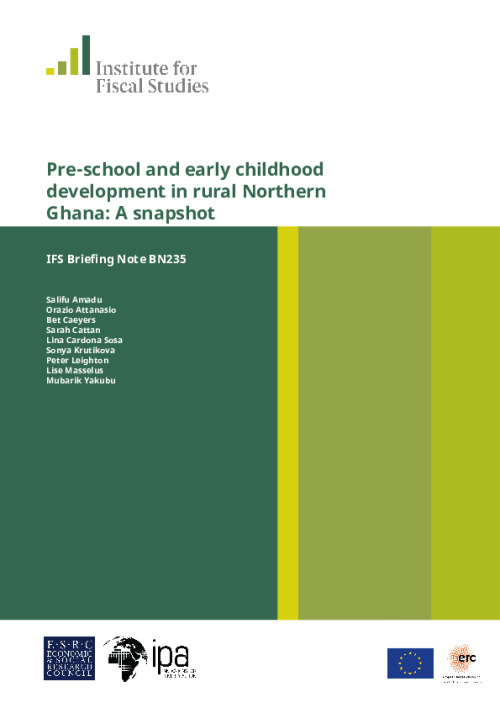
BN235.1.pdf
PDF | 740.61 KB
High quality early childhood care and education (ECCE) are critical to children’s development and their success in adult life. Ghana has shown substantial commitment to improving ECCE, with one of the highest pre-school enrolment rates in Sub Saharan Africa. However despite this, significant barriers to improvements in ECCE remain, especially in rural areas.
As part of the impact evaluation of a pre-school intervention in rural Northern Ghana, the Institute for Fiscal Studies (IFS) in partnership with Innovations for Poverty Action (IPA) has collected rich data on children, their families, pre-schools and teachers across two rural districts; Tolon (Northern Region), and Bongo (Upper East Region). These data cover information on 2407 households with children aged 3-5 (the “target child”), 151 Kindergarten teachers, and 80 schools. This brief highlights the main findings from these data.
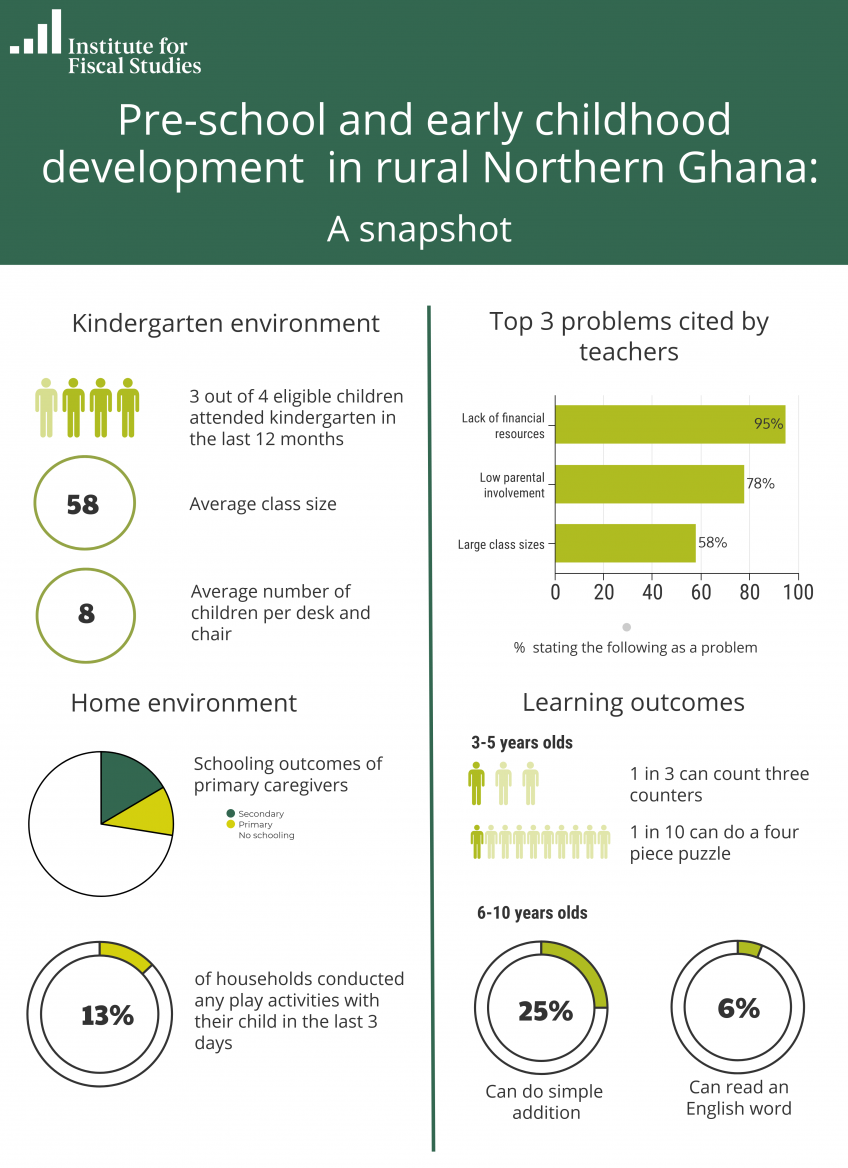
Authors

CPP Co-Director
Orazio is an International Research Fellow at the IFS, a Professor at Yale and a Research Associate at the National Bureau of Economic Research.

Associate Director
Sarah is an Associate Director in the Education and Skills sector at the IFS, holding a British Academy Postdoctoral Fellowship.

Deputy Research Director
Sonya Krutikova is an Associate Professor of Economics at Manchester University and IFS Deputy Research Director.

Research Associate Yale University, Stockholm University and FAIR/Norwegian School of Economics (NHH)
Bet is a Research Associate of the IFS who is an Adjunct Associate Professor at FAIR/Norwegian School of Economics (NHH).

Peter Leighton

Lina Cardona Sosa

Salifu Amadu

Lise Masselus

Mubarik Yakubu
Report details
- DOI
- 10.1920/BN.IFS.2019.BN0235
- ISBN
- 978-1-911102-97-7
- Publisher
- IFS
Suggested citation
Amadu, S et al. (2018). Pre-school and early childhood development in rural Northern Ghana: A snapshot. London: IFS. Available at: https://ifs.org.uk/publications/pre-school-and-early-childhood-development-rural-northern-ghana-snapshot (accessed: 20 April 2024).
More from IFS
Understand this issue

What is the case for carbon taxes in developing countries?
Carbon pricing can be a powerful tool for reducing greenhouse gas emissions. What are the risks and opportunities from such policies in developing countries?
4 November 2021

Sure Start achieved its aims, then we threw it away
15 April 2024

A mess has been made of Child Benefit, and the clear-up operation may not be easy
29 March 2024
Policy analysis
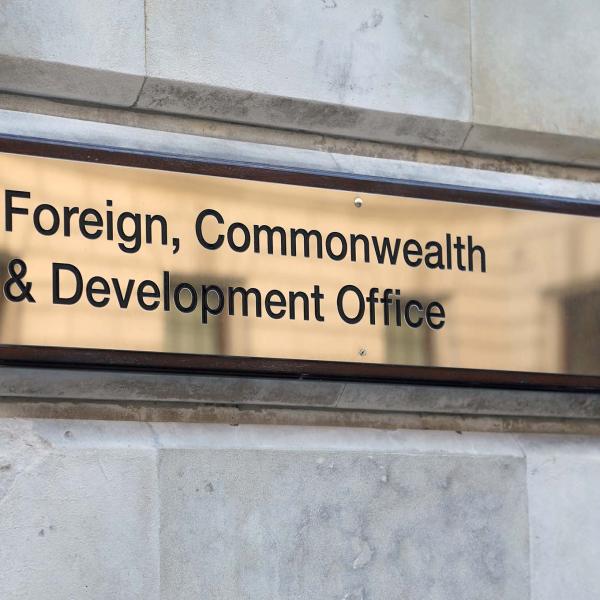
Three ways to improve the design of the UK’s overseas aid spending target
18 January 2024

Distributional analysis of Ghana’s tax system
18 December 2023
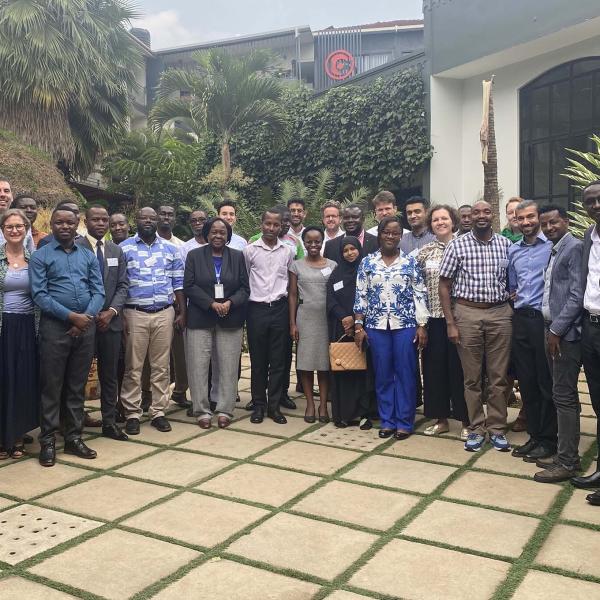
FCDO renews TaxDev funding for the next seven years
19 September 2023
Academic research
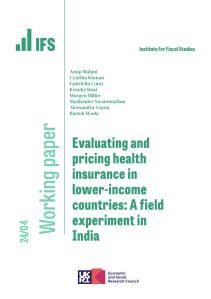
Evaluating pricing health insurance in lower-income countries: A field experiment in India
14 March 2024
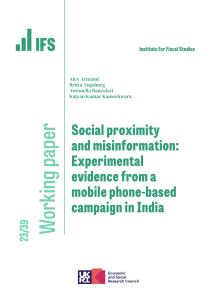
Social proximity and misinformation: Experimental evidence from a mobile phone-based campaign in India
7 December 2023
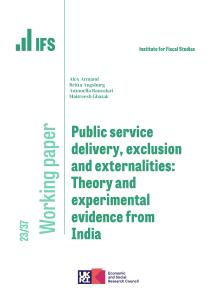
Public service delivery, exclusion and externalities: Theory and experimental evidence from India
15 November 2023